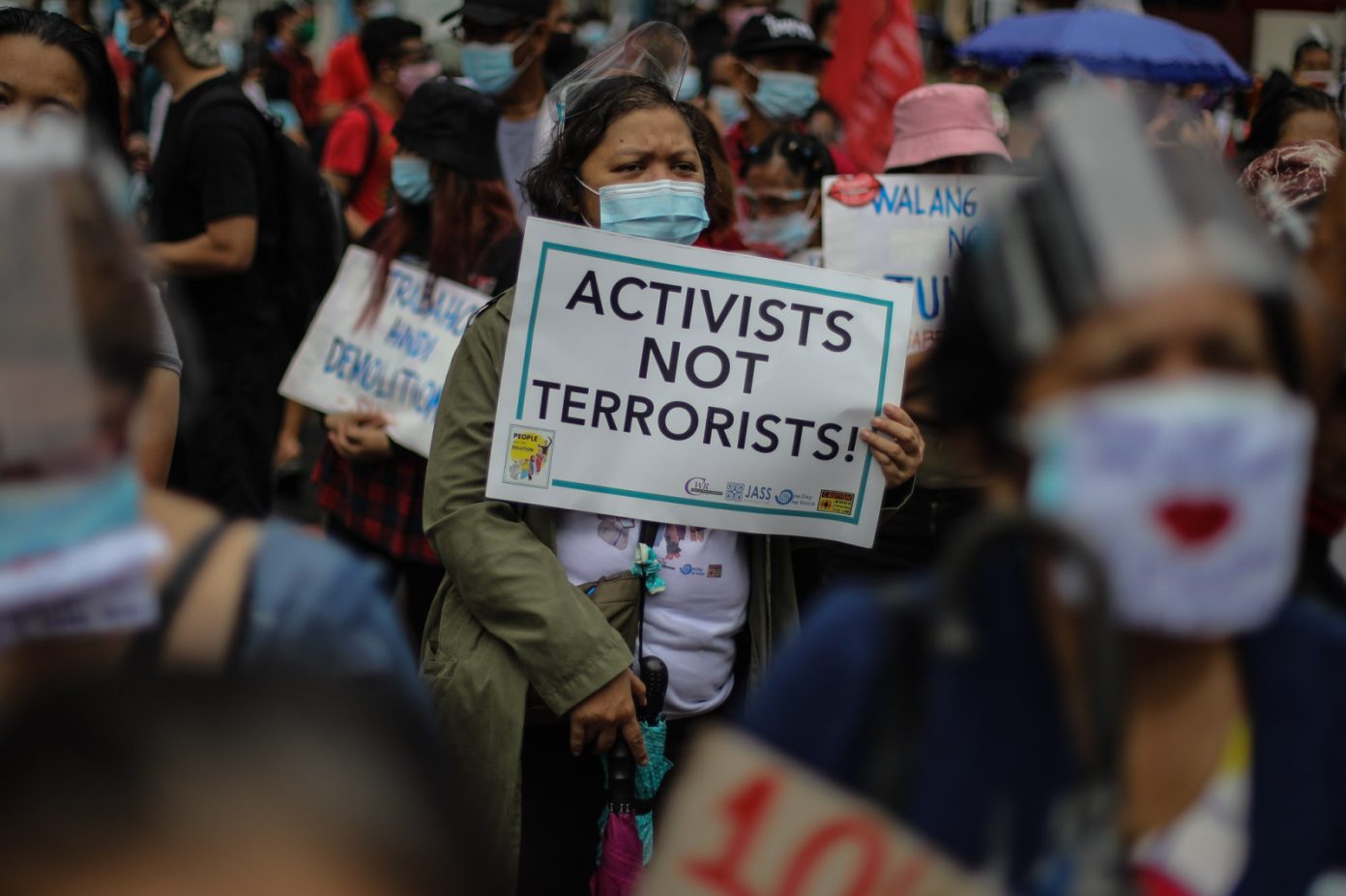Human Rights Watch (HRW) on Thursday, January 26, decried the “red-tagging” of indigenous leaders and activists in the Philippines who openly oppose government projects in tribal lands.
The human rights group noted that Philippine authorities use “red-tagging” and “other forms of threats and violence” to intimidate indigenous leaders and activists.
“The long-time practice of ‘red-tagging,’ in which those resisting projects are accused of being fighters or supporters of the communist insurgency, makes them potential targets of government security forces,” read a media release from HRW in New York.
The group said the “harassment and attacks” against Indigenous peoples “contribute to making the Philippines one of Asia’s most dangerous countries for environmental activists and land defenders.”
HRW said activists are also “harassed through the justice system,” with many facing “politically motivated charges” for defamation and other fabricated offenses.
The human rights group called on the administration of President Ferdinand Marcos Jr. to “urgently issue a clear directive” to all government officials to stop “red-tagging” and take appropriate action against those responsible.
“The Philippine officials’ ‘red-tagging’ of Indigenous leaders and activists has often proven deadly and put their communities at risk,” said Phil Robertson, deputy Asia director at Human Rights Watch.
“Indigenous communities have the right to peacefully express their views and protect their land and cultural heritage without fear of violence or death,” he added.
HRW cited the case of Beverly Longid, national convener of the political party Katribu, who has reported to have been targeted for harassment and red-tagging.
“Even before I joined Katribu in 2009, I was already being red-tagged,” Longid, former chairperson of the Cordillera People’s Alliance, told HRW.
She said the harassment has taken many forms, including the circulation of her photo retouched to depict her wearing underwear, a pair of horns, and fangs.
In 2020, during a news conference organized by the local police and livestreamed on Facebook, a police informant accused her of being a recruiter for the communist New People’s Army.
Longid said she suspects that her work in recent years, particularly bringing Indigenous peoples’ rights issues before the UN Human Rights Council, has made her a prime target.
“We are very active in human rights mechanisms in the UN, that’s why they’re going after us,” Longid said. “We are always watching our backs.”
Indigenous rights activists have also been harassed though the court system, with politically motivated cases of defamation, terrorism, and common crimes filed against them, said HRW.
Sarah Dekdeken, chair of the Cordillera People’s Alliance, was convicted in December 2022 of a cyber-libel charge filed against her by a police officer whom Dekdeken had accused in a social media post of ordering the removal of monuments dedicated to tribal leaders.
Windel Bolinget, another Indigenous rights leader from the northern Philippines, is facing murder charges that he asserts were fabricated to harass him for his advocacy.
The UN Human Rights Council, the European Union, and other international actors have all spoken out against red-tagging, but Philippine authorities continue to provide support and approval for the practice, said the HRW.
In October 2022, the justice secretary defended red-tagging before the UN Human Rights Council, calling it “part of democracy.”







